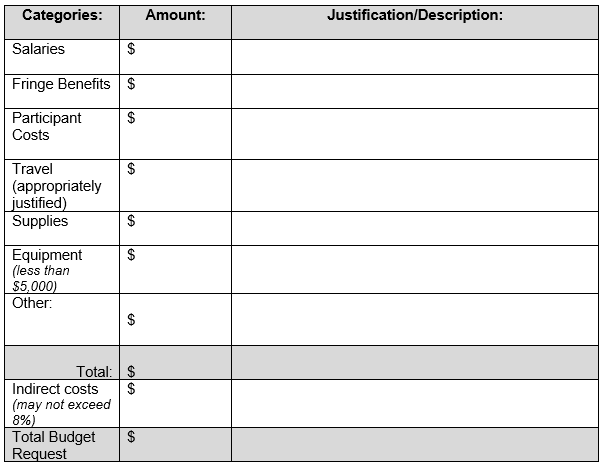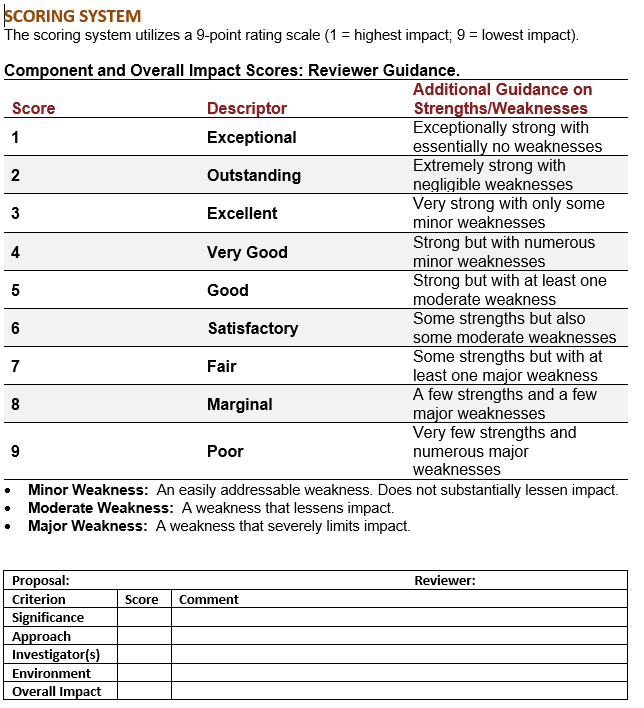Strongheart Tribal Approach to Research (STAR) Projects
Research for the Heart of Your Community
|

***Please
read the information below about the STAR Projects before applying
|
The Strong Heart Study requests applications for the Strongheart Tribal Approach to Research (STAR) Projects to address community health priorities related to the prevention and treatment of heart, lung, blood, and sleep disorders and to eliminate or reduce health disparities for these conditions.
Research areas and health topics must be related to the research areas of the Strong Heart Study and the National Heart, Lung, and Blood Institute (NHLBI) which include, but are not limited to:
• Asthma
• Blood fats
• COPD
• Diabetes
• Cystic Fibrosis
• Health Disparities and Inequities in heart, lung, blood, and sleep disorders.
Includes Social Determinants of Health https://health.gov/healthypeople/objectives-and-data/social-determinants-health
• High Blood Pressure
• Insomnia
• Nutrition
• Obesity
• Physical Activity
• Sickle Cell Disease
• Sleep Deprivation and Deficiency
• Smoking
• Women’s Health Research (research on how heart, lung, blood, and sleep disorders affect women)
Please review the example attachments before starting an application - Star Pilot Example , Star Pilot Budget
Any applicant/organization whose research would benefit the Strong Heart Study partner Tribes is eligible to apply. Community members, college students, and Tribal and other organizations **serving the Strong Heart Study communities** are encouraged to apply.
Key Dates:
|
Grant Pre-Application Due Date
|
September 30 , 2023
|
|
Full Grant Application Due Date
|
October 16, 2023
|
|
Applicants Notified of Funding Decision
|
By November 30, 2023
|
|
Grant Funding Period
|
January 31, 2024 through July 31, 2025
|
Funding:
Funding will be provided for the research projects of eighteen months duration that will be conducted from January 31, 2024 through July 31, 2025.
Applicants may request grant funds starting at $5,000 up to a maximum of $30,000.The funding is for eighteen months only, and must be spent by the end of the grant period.
Pre-Application Instructions
Key Dates
|
Pre-application Due Dates
|
September 30, 2023
|
A Pre-Application is required by every potential applicant. This information will be reviewed by the Strong Heart Study Center investigators and the NHLBI representatives who will provide input to applicants via phone/zoom. The pre-application is intended to help applicants develop their public health knowledge and skills and refine their applications before submission.
Pre-Application Requirements:
The pre-application submission will require responses to the following 7 questions:
- What is the research question or community concern to be addressed?
- How does your project address the above?
- What data will you gather and how will it be analyzed?
- How will you accomplish the goals in 18 months? (brief timeline)
- How will the results be used?
- What is the expected cost of the project (limit $30,000)?
- Would you like assistance from SHS staff in developing the application?
It is expected that this pre-application will be no more than 3 pages in length.
Full Application Instructions
Key Dates
|
Open Dates (Earliest Submission Date)
|
September 30,2023
|
|
Application Due Dates
|
October 16,2023
|
The required components include:
- Research Plan (5 pages; References and Letters of Support are not included in the page limit) including:
a) Significance: What are the project goals? Do
they address an important problem or critical barrier to health for the
community? How will the results of the study be used to address the problem or
barrier to health? Describe the expected impact of the project.
b) Approach: Describe the overall strategy, methodology and
planned analyses and how they relate to the project goals. If available, include
data and/or references to support your plans, Describe potential problems,
alternative strategies and benchmarks for success. Provide a timeline and
budget to complete the plans described above.
c) Investigator(s): Identify the individual(s) who will direct the project, take responsibility for hiring and managing personnel, conducting the project, and submitting all required reports and documentation for the life of the project. Please attach the CV or resume of any key personnel for the project (not included in the page limit).
d)Environment: Describe the community, location and facilities where the work will be done including the needed office space, supporting office and communications equipment, personnel, and management systems. Explain how these will challenge, or contribute to, the success of the project.
- References
(unlimited)
- Letters of
Support
-
At least one and no more than three letters of support directly relating to
the proposed project. These letters of support might include:
Commitment from key collaborators/partner organization with direct
involvement in the project; support from anticipated beneficiaries of the
work (e.g., communities who would benefit, scientists who might serve as
advisors in the development of data being gathered and/or scientific
finding being generated).
- Proposed
Budget:
-
Budget not to exceed $30,000 Direct Costs. The requested award
amount should be appropriate to the level of effort required to engage in
the proposed scope of work. Please include a breakdown of direct costs for
the following categories: salaries, fringe benefits, participant costs,
travel, supplies, equipment, and other expenses. If indirect costs are
needed, please include. Please use the following budget template
when uploading the budget to the STAR Projects application portal:
-


- Budget Justification: Please upload budget justification for each
line item in the budget to the STAR Projects application portal.
Application Review and Notification
Applications will be reviewed by a review committee comprised of the Strong Heart Study Steering Committee members. Proposals will be evaluated based on scientific merit using a 9-point scale: 1 (exceptional) - 9 (poor) for:
- Significance: Does the project address an important problem or a critical barrier for the community? If the aims of the project are achieved, how will community health, scientific knowledge, technical capability, and/or clinical practice be improved? How will successful completion of the aims change the concepts, methods, technologies, treatments, services, or interventions that impact the community?
- Approach: Are the overall strategy, methodology, and analyses well-reasoned and appropriate to accomplish the project? Are potential problems, alternative strategies, and benchmarks for success presented? If the project is in the early stages of development, will the strategy establish feasibility and will particularly risky and/or novel (not yet tested) aspects be managed? Does the budget represent a realistic allocation of funds to meet the requirements of the project? Does the timeline appear feasible and support the timely completion of the project?
- Investigator(s): Are the lead investigators, collaborators, consultants, and other researchers well suited to the project? Do they have appropriate experience and training? Have they demonstrated an ongoing record of accomplishments in their field(s)?
- Environment: Will the environment in which the work will be done contribute to the probability of success? Are institutional support, equipment and other physical resources available to the investigators adequate for the project proposed? Will the project benefit from unique features of the environment, community, or collaborative arrangements?
- Overall Impact: Does the proposed project carry a strong potential for future career development, further research and/or community action? The overall impact score, which will reflect the above-mentioned review criteria and the expected impact of the final product, will be used to determine funding decisions.
Strong Heart Study in collaboration with NHLBI will make the final decision for funding. Strong Heart Study will then inform applicants of the funding decision by November 30, 2023. Funding to begin January 31, 2024 for those projects selected. All STAR Project awards are contingent upon the availability of NIH funding.
Important Requirements for Funded STAR Projects
- If your application is selected for funding and if your research involves human subjects, you and your key personnel will be required to complete two online trainings courses on human subject protection (Group 1 Biomedical Research Investigators and Key Personnel and Responsible Conduct of Research) offered by the CITI Program at https://about.citiprogram.org/en/series/human-subjects-research-hsr/.Completion certificates for these two courses will need to be emailed to:
Dr.
Tauqeer Ali at
tauqeer-ali@ouhsc.edu (for applicants from
Oklahoma)
Ms. Cynthia West at cynthia.l.west@medstar.net (for
applicants from Arizona)
Ms. Marcia O’Leary at marcia.oleary@mbiri.com (for
applicants from North Dakota and South Dakota)
by February
28, 2024
.
- Strong Heart Study field centers will assist in submitting your research proposal to the Institutional Review Boards (IRBs) for approval.
- Research funding must be expended by July 31,2025.
- A quarterly
progress report will be due every quarter (by April 30, 2024for the first quarter; by July
31, 2024 for the second quarter; by October 31, 2024 for the third
quarter, by January 31, 2025 for the fourth quarter, by April 30, 2025 for
the fifth quarter, and by July31, 2025 for the last quarter).All projects
are to be completed within eighteen months.
- Proposal lead applicant should plan to present their research to the Strong Heart Steering Committee and also encouraged to present to the Tribal partners during the final months of the funding year.
**Complete online application, submit all of the required information at STAR Online Application.
Appendix
The following are the guidelines that will be used by the review committee members who will be reviewing the proposals submitted for the STAR Community Pilot Research Program.
Proposal will be scored on the four numbered categories described below, plus provide an Overall Impact summary and score. The Overall Impact Score will be used to make funding decisions. An application does not need to be strong in all categories to be judged likely to have a major impact. For example, a project by first-time applicants may be essential to advance community interests. Guidance for assigning numerical scores is provided in the Scoring System section.
Overall Impact Score: Reviewer to provide an Overall Impact score to reflect the assessment of the likelihood for community impact. The principal criterion used to evaluate each proposal is the perceived likelihood that the pilot study will lead to a successful and favorable impact on community health. High-risk proposals are favorably considered provided that the potential reward is judged to justify the degree of risk involved in the investment.
Additional Scored Review Categories:
1. Significance: Does the project address an important health problem or a critical barrier to health for the community? If the aims of the project are achieved, how will scientific knowledge, technical capability, community health, and/or clinical practice be improved? How will successful completion of the aims change the concepts, methods, technologies, treatments, services, or interventions that impact the community?
2. Approach: Are the overall strategy, methodology, and analyses well-reasoned and appropriate to accomplish the project? Are potential problems, alternative strategies, and benchmarks for success presented? If the project is in the early stages of development, will the strategy establish feasibility and will particularly risky and/or novel (not yet tested) aspects be managed? Does the budget represent a realistic allocation of funds to meet the requirements of the project? Does the timeline appear feasible and support the timely completion of the project?
3. Investigator(s): Are the lead investigators, collaborators, consultants, and other researchers well suited to the project? Do they have appropriate experience and training? Have they demonstrated an ongoing record of accomplishments in their field(s)?
4. Environment: Will the environment in which the work will be done contribute to the probability of success? Are institutional support, equipment and other physical resources available to the investigators adequate for the project proposed? Will the project benefit from unique features of the environment, community, or collaborative arrangements?

